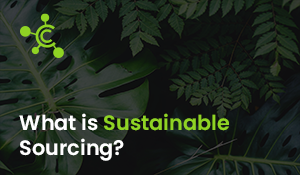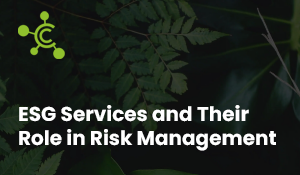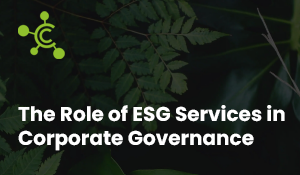What is sustainable sourcing and why is it important?
Sustainable sourcing stands as an indispensable facet of contemporary supply chain management, commanding increased attention across diverse industries worldwide, including the UK and notably the EU, with the advent of new legislative measures like the EU’s Corporate Sustainability Due Diligence Directive (CSDDD).
It represents the process by which companies meticulously ensure that every link in their supply chain adheres to responsible practices in procurement. Beyond mere ethical and commercial considerations, sustainable sourcing emerges as a strategic imperative in an era where consumers and investors alike prioritize sustainability.
With regulations such as the CSDDD taking centre stage, the imperative to scrutinise the origins of products has never been more important.
So let’s cover what sustainable sourcing is, why it matters, and how can companies get started on this.
In essence, sustainable sourcing embodies the meticulous orchestration of procurement processes to uphold environmental, social, and economic standards. It entails selecting suppliers who align with predefined sustainability criteria, encompassing environmental stewardship, equitable labor practices, and community support.
Focussing in on the sustainability risks and opportunities inherent in supply chains, businesses can make procurement decisions that bolster their resilience while minimizing adverse environmental and societal impacts.
Why your business should prioritize sustainable sourcing:
Sustainable sourcing is increasingly vital for several pivotal reasons, each representative of broader shifts in the global business, environmental, and social spheres:
Adhere to regulatory requirements
Governments and international bodies worldwide, including the EU, the UK, Germany, and France, are enacting stricter regulations concerning the environmental and social aspects of your business. Embracing sustainable sourcing aids companies in upholding regulatory standards, thus averting legal risks and potential fines.
Mitigate risks and enhance supply chain resilience
The past few years have underscored the susceptibility of global supply chains to environmental and social upheavals, exemplified by the pandemic and social unrest. By proactively embracing sustainable sourcing practices, businesses can fortify their resilience against such disruptions, ensuring smoother operations.
Minimize environmental and social impact whilst championing ethics
Consumers and stakeholders increasingly scrutinize the origins and methods behind product creation. Sustainable sourcing addresses pertinent concerns, such as workers’ rights, pollution, and deforestation, resonating positively with stakeholders and aligning with ethical imperatives.
Foster stakeholder trust and attract top talent
Companies embracing sustainable sourcing exhibit a steadfast dedication to ethical conduct, bolstering their brand reputation and fostering customer loyalty. Moreover, such practices appeal to top-tier talent seeking employment with socially responsible organizations.
In essence, sustainable sourcing transcends mere ethical considerations to emerge as a strategic business imperative. By managing risks, adhering to regulations, and meeting stakeholder expectations, businesses can not only thrive but also contribute to a more sustainable, equitable world.
Sustainable sourcing regulations
Nations like the UK, are among those that have already enacted or are in the process of adopting domestic sustainable sourcing legislation. These regulations compel companies to assume responsibility for the impacts of their supply chains.
In 2023, the EU introduced a long-awaited directive, the EU Corporate Sustainability Due Diligence Reporting Directive Under this directive, all large companies operating or selling within the EU will be required to conduct due diligence on their own activities and those of their suppliers.
5 steps to establish a sustainable sourcing strategy:
Develop a conscientious sourcing policy:
Craft a sourcing policy that outlines your company’s interpretation of sustainable sourcing, alongside establishing precise guidelines and standards for suppliers and staff to adhere to. Utilize accredited third-party sustainability consultancies versed in the importance of ISO principles to ensure suppliers meet environmental and social sustainability requisites.
Assess your existing supply chain:
Map out your current supply chain to pinpoint suppliers and the origins of your materials and services. At Causeway Connect, we recognise the need to conduct a comprehensive sustainability audit is imperative for effectively mitigating ESG risks within supply chains.
Engage with your suppliers:
Forge close partnerships with your suppliers to encourage the adoption of sustainable practices. Develop an efficient process for gathering essential data and supporting suppliers in their sustainability endeavors. Remember, keeping reporting straightforward for suppliers is essential to ensure you obtain the necessary information.
Conduct comprehensive due diligence:
Establish a systematic process for evaluating potential social, environmental, and ethical risks and opportunities associated with current and prospective suppliers. If you’d like to learn more about managing these risks sign up for our webinar for ESG Excellence and Reporting on May 16th at 15:30 GMT, to hear form top ESG experts and consultants.
Monitor, audit, and report:
Continuously monitor the sustainability performance of your suppliers and conduct regular audits, either internally or through third parties, to ensure compliance with your policy. Maintain transparency with stakeholders by reporting on your sustainable sourcing practices and progress. It is through transparent reporting that you can demonstrate your progress and cultivate trust.
Keen to embark on this journey? Contact us today, and we’ll set you on the right path!




